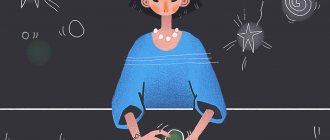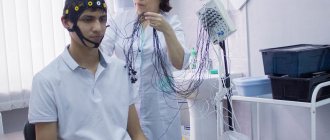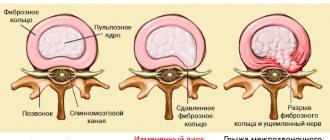Autism is a psychomotor development disorder characterized by impairments in social interaction, verbal and nonverbal communication, accompanied by restricted behavior and stereotypical actions. The first clinical signs begin to appear, as a rule, in the first two years of a child’s life, actively progress until the age of 12, then they are characterized by some regression - the patient seems to “outgrow” the disorder.
How does autism manifest?
As already noted, symptoms most often begin to appear in childhood. Parents, for their part, should devote more time to the baby and carefully monitor his behavior. In this article we will talk about the signs of autism in adult women and men:
- Senseless, erratic movements of the arms, head and other parts of the body.
- The patient makes up his own rules and strictly follows them. For example, he puts things in a strictly certain order.
- Increased irritability and manifestation of aggression to any changes in his usual environment. For example, rearranging furniture in a room.
- Strict adherence to certain regimes and routines.
- The patient often repeats actions and sees only one direction.
- Sometimes there is an excessively high level of activity, reaching the point of insanity; the patient can easily bite or hit himself.
Of course, such symptoms can also be observed in a completely healthy person. But here we are talking about pronounced, permanent signs. And this is the first alarm call.
When it comes to depression, we imagine a gloomy, apathetic person. His judgments are negative, his mood is decadent, his self-esteem is low, and his outlook on life is quite sad. Read more in the article: “hidden depression: symptoms.”
Experts are actively studying this problem and monitoring patients for a long time. Research has identified additional symptoms of autism in adults:
- almost all patients with pathology have a low level of intelligence;
- seizures of various types are observed in a quarter of patients;
- a person suffering from autism cannot concentrate for a long time, lack of perseverance;
- unjustified outbursts of anger usually arise as a result of an attempt to explain something or a misunderstanding of the interlocutor’s arguments;
- violation of the usual eating regimen, lack of appetite, requirement of the same diet, identical arrangement of plates and other utensils;
- sleep disorders, most often expressed in insomnia, that is, a person takes a long time to fall asleep, gets up in the middle of the night, wakes up too early, etc.
Problems of self-diagnosis of autism in children and adults
The main question is when to resort to self-diagnosis. The answer to this depends on whether you suspect this condition in your child or in yourself.
One of the signs of autism with intact intelligence is considered to be Savant abilities - significant progress in some area (memorization, drawing, counting, reading, etc.) compared to children of the same age. This is what sometimes disorients parents. From their point of view, the child is doing well, he does a lot better than his peers, he knows more than they do. Difficulties with speech that often occur are attributed to a choleric temperament, a late visit to a speech therapist, or a change of teeth, but the main problem is not noticed: lack of knowledge.
Autism syndromes and their features
Autism is a general name for several syndromes that are characterized by common features, but also have their own characteristics and characteristic behavioral patterns.
Advertising:
Kanner syndrome
The disease is characterized by obvious lesions of the cerebral cortex, due to which the patient has serious problems with communication, there are speech defects, aggressive behavior is noted, intellectual data is poorly expressed, and it is almost impossible to find a common language with the person. Able to exist normally only in one familiar environment. No more than two out of ten thousand people suffer from this syndrome; it can be diagnosed in childhood.
Pathologies of the respiratory tract that provoke aphonia (lack of voice) are a common reaction to infections, poor environment, stress and other factors. Read more in the article: “my voice is gone, my throat does not hurt and there is no fever.”
Asperger's syndrome
Asperger's syndrome - as a form of autism, expressed in a pronounced deficit in social interaction and communication, is characterized by limited interests and the same type of actions. Asperger's syndrome is often diagnosed in children of primary school age. As a form of autism, Asperger's syndrome is a dysfunction that affects a person's perception of the world, processing information and relationships with other people.
Rett syndrome
Advertising:
Rett syndrome is a congenital brain pathology characterized by defective mental development with intellectual impairment and leading to social maladjustment. This neuropsychiatric genetic disease is caused by gene mutation. It is manifested by progressive mental retardation mainly in girls, muscle hypotonicity, unsteadiness of gait, scoliosis, constipation, loss of acquired skills, respiratory disorders, paresis and paralysis. The mechanism of inheritance of Rett syndrome is dominant, linked to the X chromosome. The syndrome is extremely rare in boys. For them it is incompatible with life.
Video - Autism in adults: symptoms, causes, forms, diagnosis, treatment
Asperger's syndrome in women
Statistics show that Asperger's syndrome and other autism spectrum disorders are more common in boys. However, girls can also have autism or one of its variants.
Relatively recently, a study was conducted in Scotland (Rutherford et al, 2016), the results of which were very interesting. It turns out that among young children with Asperger's syndrome the ratio of boys to girls is 5.5:1, for teenagers the ratio is 2.3:1, and for adults it is 1.8:1. Based on this, we can conclude that this pathology does not occur less frequently in women, it is simply diagnosed later. While boys are brought to doctors by their parents, girls turn to specialists on their own when they become adults.
This state of affairs is partly due to the fact that some symptoms in girls occur differently than in boys. Parents should be wary of their daughter's behavior:
- subtle behavioral problems. They are not, according to parents and teachers, something destructive. Therefore, they are often not taken into account. Well, is it really worth taking a girl to a psychiatrist if she doesn’t want to communicate with her classmates? But if a child is too withdrawn and shy, and is constantly alone, then you should think about it and take a closer look at him;
- selective mutism. This symptom means that the girl cannot speak in some situations, and she cannot choose when exactly she can speak and when not. That is, this week she will be able to answer in school, but next week she will not. It is impossible to predict the incidence of mutism;
- communicates mainly with boys. Such girls are usually called “tomboys”. Girls with ASD do not share their peers’ passion for fashionable clothes and hairstyles; they simply do not understand why this is necessary. The moment of puberty can come as a shock for them; they are completely devoid of sexuality and do not experience sexual desire. Young women on the autism spectrum may want to have children, but they find adoption more acceptable than having their own due to their reluctance to be intimate with a man;
- being in a fantasy world. Children tend to immerse themselves in made-up stories and become captivated by fairy-tale characters. As you grow older, such passion recedes, and more real things come to the fore. However, girls with Asperger's syndrome continue to live in fantasy worlds. Psychotherapists explain this by saying that in reality people with ASD feel out of place, but in a fictional world they are loved for who they are.
Asperger syndrome cannot be cured, but identifying it and understanding the characteristics of a person with this pathology allows you to build normal relationships in the family. This applies to both parents with children and spouses. Quite often, women with ASD refuse intimate intimacy, although they sincerely love their spouse. Impaired sensory perception leads to the fact that touching the body (especially in sensitive areas) is perceived as unpleasant or painful. The desire to live according to a routine can turn intimacy into a clearly planned ritual, which a neurotypical partner will quickly get bored with. Understanding what Asperger's syndrome is will help save the family.
Girls with this pathology feel unhappy; they often want to have a loved one and a family, but it is extremely difficult for them to build relationships with the opposite sex. In addition to problems associated with ASD, girls and young women experience depression, gender dysphoria, anorexia nervosa and anxiety disorders due to emotional distress. All this, as well as the desire to understand themselves and the causes of their problems, brings them to the psychotherapist’s office. And only after receiving information about Asperger's syndrome do they accept themselves and learn to live with their innate “peculiarities.” There is no need to fear that you will be misunderstood or forever labeled as “abnormal.” Awareness of the problem is the first step towards improving your own life.
Frequency of symptoms of autism
| Sign | Frequency of occurrence |
| Desire for isolation | Often |
| Difficulties in communication | Often |
| The desire to do one thing | Rarely |
| Retardation of activity | Often |
| Hearing impairment | Rarely |
| External defects | Often |
| Aggression | Rarely |
| Difficulty understanding information | Often |
| Emotional disruptions | Often |
| The difficulty of understanding another person's emotions | Often |
This table was compiled using only 100 patients, so results may vary slightly in a larger study.
Examples of autism tests for adults
Advertising:
The tests are used only during the initial screening of an adult patient to determine the need for further evaluation. The most popular and most frequently used diagnostics will be discussed below.
AspieQuiz
The technique consists of 150 questions that affect personal, professional and social areas of life. Examples of questions are: is it difficult for a person to be around strangers, do you have problems with asexuality, how passionate are you about your business, and so on. After answering all the questions, testing will assess your intellectual, social characteristics and ability to accept incoming information.
RAADS-R testing
This testing can only be completed in a specialist’s office, since the online tests offered cannot give an accurate result. The peculiarity of this test is that it absolutely does not give false positive results, since during the examination behavioral characteristics are taken into account not only at the present moment, but also up to 16 years of age. In psychology, this age is critical and marks a kind of transition from puberty to adulthood.
TAS20
This test is designed to test the sick person’s ability to perceive the emotions of the interlocutor. According to previous studies, only 20% of people with autism can understand another speaker. Moreover, this recognition may be somewhat inhibited. The test consists of three scales: how well a person recognizes the emotions shown to him, how well he can describe them, as well as features of externally oriented thinking.
Which test to take for a particular patient is determined by the attending physician. You are only allowed to take the ASPIE on your own on the Internet, but with its results it is still better to contact a psychologist or psychotherapist.
Diagnosis of autism: problems and solutions
The diagnosis of autism in Russia is in its infancy. Children inevitably go through standard stages of socialization: clinic, kindergarten, school. If a child has autism spectrum disorders, specialists will most likely pay attention to him and inform parents about the need to consult a child neurologist and psychiatrist. It is this, and not the increasing incidence of autism, that is the reason for the so-called epidemic: they have begun to be diagnosed more often, but this does not mean that there were fewer autistic people before.
If autism was not noticed in childhood, it is more difficult to identify it in adolescence: the hormonal storm of adolescence makes mood swings common in all teenagers, not just autistic people.
The hardest thing is with adults. The cause of their problems is sought in anything but autism, and the reason for this is the established stereotype that ASD is a childhood disease and goes away with age. Firstly, it is not always a disease, and secondly, it does not go away. Learning to dance on a prosthesis is not the same as growing a new leg. As a result, adult autism is their own problem. With children and teenagers, things are also not so smooth: the hope in specialists is sometimes not justified. And then it is the parents’ task to exclude (or confirm) autism.
Testing and self-diagnosis will help you suspect autism and contact a doctor who specializes in this particular developmental feature as quickly as possible.
A selection of useful videos about ASD, signs and diagnosis (English, but much is clear without words):
Treatment of autism
The disease cannot be ignored, as it can progress and can lead to complete isolation and severe aggression of the patient. First, you need to choose an individual approach to the patient, becoming a good friend for him. After this, through conversations and activities to develop fine motor skills, intellectual stimulation, with the help of even the most ordinary mosaics and pictures, the IQ level will gradually increase.
Advertising:
If treatment is successful, the patient will begin to make contact with other people and try to perceive incoming information. If this does not help or does not bring the desired result, medications are prescribed. If severe anxiety and panic attacks occur, the patient will be prescribed antidepressants.
If a patient exhibits severe aggression, he should take antipsychotics, which can suppress irritation by blocking the activity of nerve endings. But it is worth understanding that because of this, the patient can become very slow and poorly perceive incoming information. In this case, analeptics will be prescribed that will increase attentiveness and the ability to think.
Causes of the disease
Previously, experts were convinced that autistic disorders are the result of problems in the family, indifference, coldness and detachment on the part of parents, and psychological trauma in early childhood. However, the theory of the endogenous etiology of latent autism (as, by the way, other forms of this disorder) has not been confirmed.
Now there is no doubt that the disease is a consequence of either one or a combination of the following factors:
- hereditary predisposition;
- genetic (chromosomal) pathologies;
- defects in the intrauterine development of the central nervous system (as a rule, this is the expectant mother’s non-compliance with the diet, doctor’s recommendations regarding lifestyle, previous viral infections, the effects of toxins, etc.);
- birth injuries, neurotoxic diseases or organic damage to the central nervous system in the early postpartum period;
- ecological situation.
According to statistics, the pathology occurs more often in boys ; latent autism practically does not occur in girls - this type of disorder is much more severe in them, with pronounced signs of severe mental retardation.
How adapted is an autistic person to life?
The disease cannot be ignored, as it can progress and can lead to complete isolation and severe aggression of the patient. First, you need to choose an individual approach to the patient, becoming a good friend for him. After this, through conversations and activities to develop fine motor skills, intellectual stimulation, with the help of even the most ordinary mosaics and pictures, the IQ level will gradually increase.
If treatment is successful, the patient will begin to make contact with other people and try to perceive incoming information. If this does not help or does not bring the desired result, medications are prescribed. If severe anxiety and panic attacks occur, the patient will be prescribed antidepressants.
No matter how strange it may seem, autistic people quite often achieve success in the fields of mathematics and physics. They can ponder over some formula for quite a long time; thanks to their perseverance, they observe rare processes that subsequently lead to discoveries and breakthroughs in science. In addition, people with a mild form of the syndrome can become talented musicians, scientists, directors, models and actors. Bob Dylan, Isaac Newton and even the twentieth US President James Garfield are all examples of autism, which did not prevent it from becoming a legend and history.
Advertising:
If studies have shown that you suffer from autism, or your loved one is faced with this problem, you should not immediately think that life ends there. In conditions of normal social communication, in which there are understanding people and friends who are close in spirit to the sick person, a patient with a similar diagnosis can fully realize himself in the professional and personal sphere.
Interesting facts about testing and self-diagnosis of ASD
Autism is a diagnosis that should be given to a child not by a test, but by a council of specialists. Given the confusion in terminology, the question of whether it is a disease or character traits must be answered in each specific case.
But if you are an adult and are wondering whether you have autistic traits, this is a reason to take care of yourself and consult a specialist. The difficulty is finding the right one. If the tests show high scores, then it is better to start with those psychotherapists and psychiatrists who specialize in working with such patients. There are few such specialists, and even fewer experienced ones among them.
There already exist, at least in large cities, self-help groups for people with autism. There you can meet those who will tell you where to go to confirm or refute your suspicions. You can also discuss the results of your tests with them.
Most often, people with autism spectrum disorders try to consult with at least two specialists. This is completely normal and correct: doctors are people too and can make mistakes, and the disorder, as has been said more than once, is very diverse.










